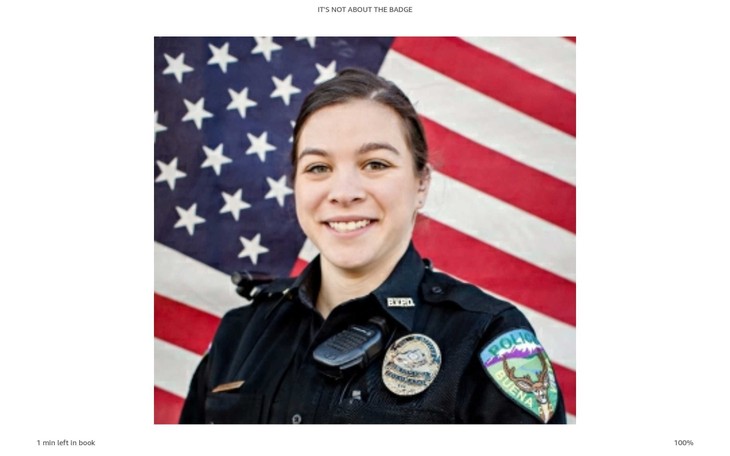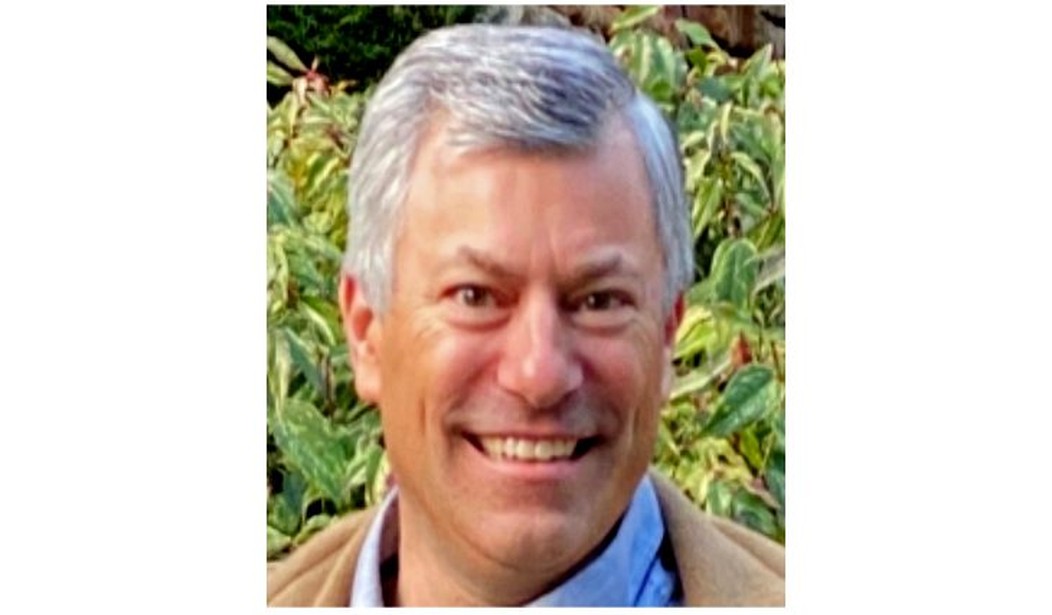Former CPA and writer John DiGirolamo lives in Chaffee County, Colorado, a central county of less than 20,000 people, that embodies three cities: Salida (pop. 6,082), Buena Vista (pop. 2,866), and Poncha Springs (pop. 956). These small, rural communities are definitely places where not only does everybody know your name, but probably where you live.
DiGirolamo’s daughter Megan is a peace officer in the community of Buena Vista (Coloradans pronounce it “Bew-na” Vista), and during the school year, Megan is the resource officer for the three town schools, elementary, junior high, and high school.

Officer DiGirolamo’s adventures and struggles in small town law enforcement was part of the inspiration behind John DiGirolamo’s book, It’s Not About The Badge: Real Cops. Real Stories. Their Journey, which documents the personal and professional stories of six peace officers, and the unique role they play in their small communities.
“My daughter is a police officer, so I think I’ve got a, you know, kind of a unique approach to this where I can think about it as an average citizen does,” he stated.
“But I can also think about it from the police perspective, ’cause I hear stories and kind of what goes on from her.”
DiGirolamo talked about the 2020 George Floyd riots and unrest, and the now defunct George Floyd Justice in Policing Act as the other part of the reason why he was moved to write the book.
“I think we’re definitely seeing the effects of the ‘defund the police movement.’ Crime is up in in just about every major city in the country,” he said.
“But my book really tries to focus on the human side of policing, especially with small town police officers. I think they have the least amount of a voice.”
As DiGirolamo’s daughter and the other five officers present in the book, a rural peace officer’s day can go from assessing a local who is mounting a scratch business on the sidewalk, to a dangerous shootout with someone high on drugs.
Aside from the television series COPS, much of the entertainment and legacy media ignores this specialized aspect of policing, and often treats small town police officers either as a side note, or like “Barney Fife”: all stumbles, bumbles, and inefficiency.
“I wanted to focus on kind of those small-town people who are really sort of the backbone of America’s police force, because you don’t hear from them, yet they do a lot of the work,” DiGirolamo said.
“Their work is just as dangerous as big cities, because they may be out in the county on a 911 call, and back up might be 20 minutes away, which is a lifetime, given how events can unfold.”
Because many of the towns are so small, after training with a senior officer, rural officers patrol on their own. They do not have a regular partner.
“So, to me, it’s just as dangerous as other big cities,” DiGirolamo said.
Because a rural officer often patrols alone, backup may be even more than 20 minutes away. So, these officers have to be on their game and maintain an awareness that is unique to a rural setting. These officers are well versed in their surroundings, and well-trained on what to do when alone in crisis situations.
So, small community policing can actually be more dangerous; but the rewards can also be more satisfying. These officers are a recognizable part of their communities. Unlike big city policing, where cops are otherized and seen as a threat, rather than a welcome presence, the rural police are seen shopping with their families at the grocery store, at community events, or in the pew on Sunday.
In his book, DiGirolamo sought to show these moments where being a part of the community makes a difference not only in their lives, but in their policing. DiGirolamo succeeded in his book in humanizing these officers, and giving the reader a window into the officers public and private worlds.
“I think the point of my book is to really give people the perspective that these are real people with real issues, you know? Real life situations.
“It’s not all policing. There’s a story of a marriage proposal. There’s a story about adopting a child, things like that,” he said.
Another takeaway DiGirolamo gained from these officers and their stories is that the instinct to serve and protect appears to be something these men and women were born with.
“I asked the question once, ‘Well, why don’t, you know, why are any of them working as a police officer?’ The answer, I think, is because it’s really kind of built into their DNA,” DiGirolamo said.
“Many of the officers talked about as a young child, this desire to help people, especially those that are vulnerable. And they felt as if it was like a calling: to, you know, help protect, and stop crime.”
Most of the officers in the book described themselves as Christians. I asked DiGirolamo whether this was intentional, and how he feels having a faith life ties into the life of law enforcement.
“They did talk about that, and how their faith was really helping them,” he said.
“Especially last year, when, you know, the police were vilified so much. I think a lot of them had natural thoughts of, why am I doing this when I’m just getting beat up in the media every day? It was already a tough, sort of thankless job, and now I’m even less appreciated.
“I think that, you know, their faith in Christ really helped.”
In terms of the state of law enforcement nationwide, DiGirolamo is heartened by his daughter’s experiences as a resource officer, which allows her to be an example for young people, as well as the community.
“Yeah, I think as everybody gets to know each other better, tensions will go down, and the only way to do that is really sort of, ‘feet on the street’ or in the schools, in the community. You know, getting to know them,” he said.
“It’s like, you could easily be very mean on your computer with a nameless faceless person on the other side of Facebook, but if you actually talk to them in the same room, it probably ends better.”
My full interview with John DiGirolamo can be found on the Red Beans & Fried Rice Podcast page here.
DiGirolamo’s book, It’s Not About the Badge, is available on Amazon.com, or you can purchase a signed copy from the book’s website.













Join the conversation as a VIP Member